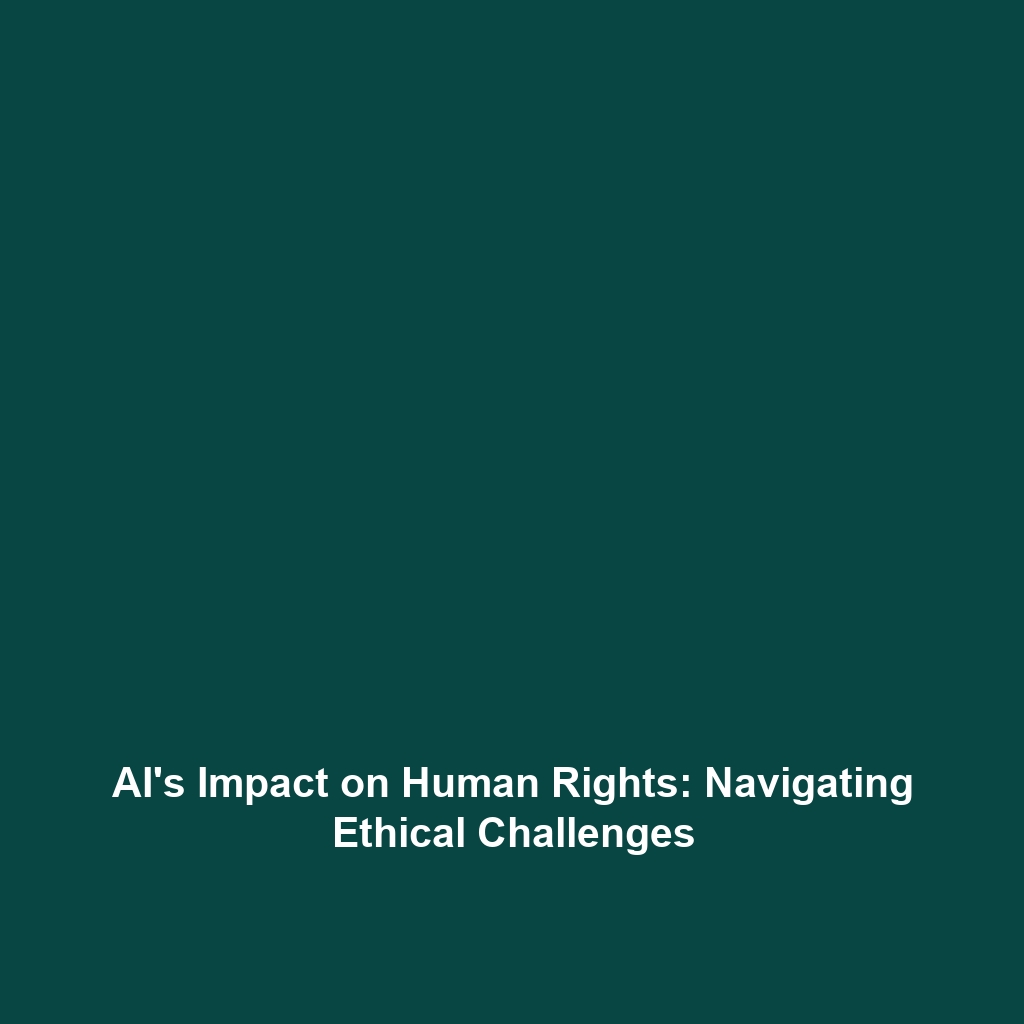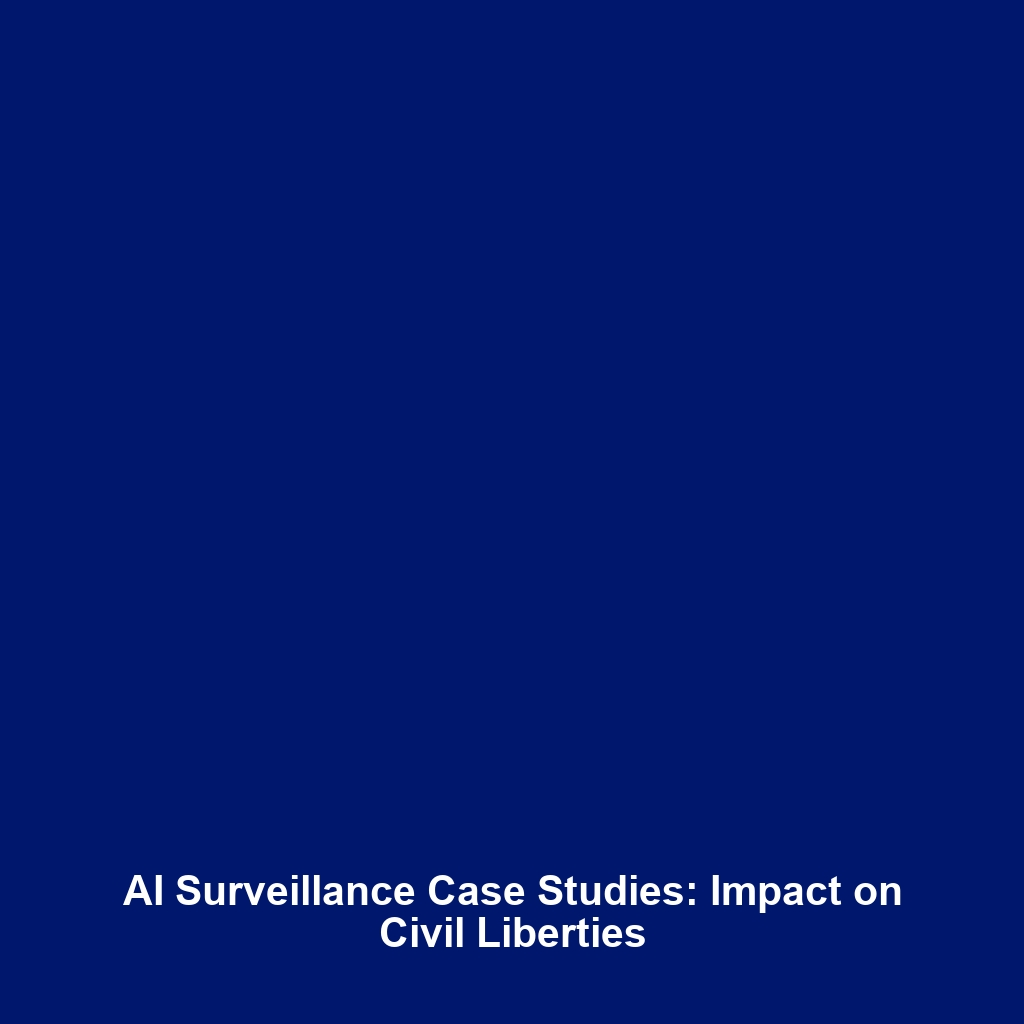AI’s Impact on Fundamental Human Rights: How AI Technologies Intersect with Human Rights
As artificial intelligence (AI) continues to evolve, its interplay with fundamental human rights has emerged as a critical area of concern within the field of AI Ethics. The potential of AI technologies to affect personal freedoms, privacy, and equality necessitates a thorough understanding of how they intersect with human rights. This intersection is vital as governments, organizations, and individuals grapple with the implications of integrating AI into various aspects of daily life, making it imperative to address the ethical considerations that arise.
Key Concepts
Understanding the relationship between AI and human rights requires grasping the following key concepts:
1. Fundamental Human Rights
Fundamental human rights are intrinsic to all individuals, irrespective of nationality, ethnicity, or economic status. They include the right to privacy, freedom of expression, and protection from discrimination, among others. As AI technologies proliferate, ensuring that these rights are upheld becomes increasingly complex.
2. AI Ethics
AI Ethics encompasses the moral principles and values guiding the development and implementation of AI technologies. Ethical concerns include bias in AI algorithms, transparency in decision-making processes, and accountability for AI-driven actions, which all significantly impact human rights.
3. Intersection of AI and Human Rights
The intersection of AI and human rights involves analyzing how AI applications can both support and undermine these rights. For instance, while AI can enhance accessibility for marginalized communities, it also poses risks such as surveillance, data misuse, and perpetuating existing biases.
Applications and Real-World Uses
AI technologies are widely employed across various sectors, impacting human rights in profound ways:
- Surveillance Systems: AI is used in facial recognition technologies, raising significant privacy concerns and issues of potential racial profiling.
- Social Media Monitoring: AI algorithms analyze user-generated content, which can lead to censorship or the suppression of free speech.
- Healthcare Diagnostics: AI applications in healthcare can promote equality by improving access to medical services, although they can also introduce biases if data sets are not representative.
These examples illustrate how AI technologies impact human rights within the realm of AI Ethics, demonstrating both positive potential and significant risks.
Current Challenges
Despite the advancements in AI technology, several challenges persist in understanding its impact on human rights:
- Lack of Regulatory Frameworks: There is a significant gap in existing laws addressing AI technologies and their implications for human rights.
- Bias in AI Models: AI systems can perpetuate and even amplify biases if not carefully monitored, leading to discrimination and uneven access to resources.
- Transparency Issues: Many AI algorithms operate as “black boxes,” making it difficult to understand how decisions are made or to hold systems accountable.
These challenges of AI’s impact on human rights highlight the pressing need for ethical guidelines and regulations.
Future Research and Innovations
The trajectory of research in AI and human rights is moving towards innovative solutions:
- Explainable AI: Developing AI models that offer transparency in decision-making processes and reasoning.
- Bias Mitigation Technologies: Actively working on techniques to detect and reduce biases in AI systems.
- Policy Development: Creating comprehensive policies and regulations that protect human rights in the deployment of AI technologies.
These future-oriented advancements will directly contribute to redefining AI Ethics and its influence on fundamental human rights.
Conclusion
AI’s impact on fundamental human rights presents a dynamic and complex challenge that intertwines with broader discussions in AI Ethics. A comprehensive understanding of how AI technologies intersect with human rights is essential for developing ethical frameworks that safeguard fundamental rights while harnessing the benefits of AI. As we move forward, it is imperative to advocate for ethical AI practices and policies to ensure that technology serves humanity equitably. For further reading, explore our articles on Bias in AI and Regulatory Frameworks in AI Ethics.


